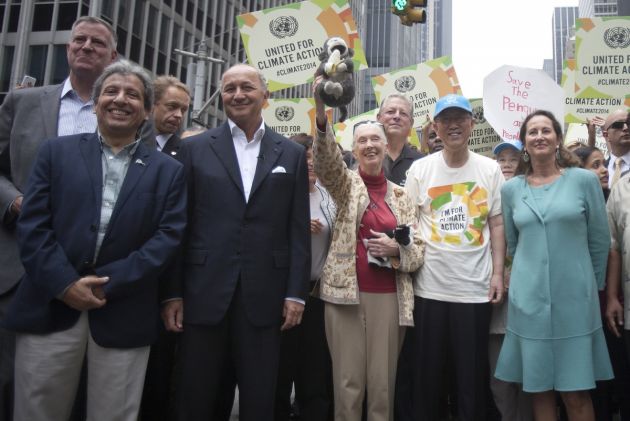Role of faith in tackling environmental challenges expounded at Nairobi Environment Assembly

Religious leaders have joined top UN officials in tackling climate change, a phenomenon that threatens to annihilate humanity, at a conference in Nairobi in which is missing some key participants after a tragic air crash.
On the sidelines of the UN Environment Assembly in Nairobi, top UN officials, religious leaders and environmental experts underlined the role of faith communities in tackling climate change, the World Council of Churches reported.
The assembly opened on March 11against the dark shadow of the Ethiopian Airline that plane crashed soon after take-off from Addis Ababa, killing all 157 persons on board.
Twenty-one UN staff members and at least five workers in church organizations were among the 157 people killed after the flight plummeted into a field outside Addis Ababa.
Rev. Norman Tendis, a World Council of Churches (WCC) consultant from Austria who was travelling to Nairobi to participate in an event at the assembly titled "Faith for Earth Dialogue" during the UN summit died in the crash.
Sara Chalachew, Getnet Alemayehu, Sintayehu Aymeku and Mulusew Alemu, employees of Catholic Relief Services, were also aboard the fallen Boeing 737 MAX 8 on its way to Nairobi, Kenya.
Catholic Relief Services said, "It is with heavy hearts that we share the news that four members of our staff were killed" in the crash.
"All four individuals were Ethiopian nationals traveling to Nairobi to attend a training on our behalf," CRS said according to Catholic News Agency.
In Nairobi the participants meanwhile are discussing innovative solutions for environmental challenges and sustainable consumption and production.
There leaders from world's religious traditions elaborated on the approaches they use to solve environmental challenges such as climate change.
"I am impressed by what the UN has done to reach out to this (faith) community. You convene people of faith and there is only one thing - that is goodness in life," said Inger Anderson, a Danish economist and environmentalist who has been appointed the executive director of the United Nations Environmental Program.
She explained that when the different faiths come together, a stronger world and voice for the environment, the planet, sustainability, justice and love is created.
"When I see these people I feel very great - I feel inspired. And I am thankful for the commitment you have," said Anderson.
The WCC and its African partner, the All Africa Conference of Churches had organized a session titled "Eco-Just Churches and Communities: Models for Living with Justice and Sustainability."
Tendis had been schedule to elaborate on a Roadmap for Congregations, Communities and Churches for an Economy of Life and Ecological Justice which he had authored.
"He had been advocating for economic and ecological justice. A credible voice at the UN, he had been saying that we must practice what we preach in our churches.
"That's why the road map to ecological justice was his key passion," said Athena Peralta, WCC program executive for economic and ecological justice.
ALL AFRICA CONFERENCE OF CHURCHES
Rev. Arnold Temple, president of the All Africa Conference of Churches, warned that the world had become ecologically bankrupt, while calling for urgent action to tackle climate change.
The effects were impactful, he said, while highlighting increased droughts, landslides and floods which caused the deaths of thousands.
"The need to act is now. We are calling on our churches to adopt the role of being a blue community," said Temple. "It has been estimated that by the year 2050, there will be more plastics in our rivers and oceans than fish."
Canon Rachel Mash, environment coordinator of Green Anglicans, an environmental network of the Anglican Church in southern Africa, said from the smallest village to the largest city in Africa, there were churches and other faith groups.
"Can the spiritual power of the churches and other faiths around the world be harnessed to combat climate change? What is the potential of the faith groups?" posed Mash.
"They are in touch with local cultures and local leadership. They have the infrastructure. They got the potential pool of volunteers and an ethic that calls for transformational actions."